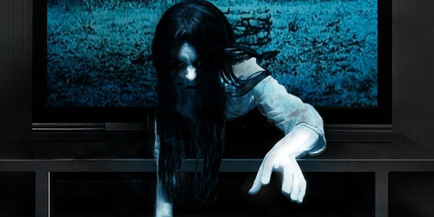|
|
Movie Review: RingsBy Ben GruchowFebruary 7, 2017
Alas, once Julia sees the tape, she believes that Samara is speaking to her and that she is a kind of “chosen one.” Her “copy” of the video has new footage on it, buried within frames of the existing video - an exotic concept on something like VHS, sure, but guaranteed to herniate the neural passageways of digital-video enthusiasts (alternative rationalization: Samara only distributes the secret footage in H.265). And once we establish this plotline, we are off to the races with foreboding observations about ancient cultures and burial rites (did anyone in this movie ever stop to think how easy it is to cite an ancient culture’s postmortem beliefs without citing which ancient culture they’re talking about? Aren’t these people college students?), and soon Julia and Holt are on the road to Samara’s birthplace, to find out more about her mother, how she died, who’s responsible, etc. We know the drill, although in all fairness this movie mostly plays fair with its secret unveilings; if you put yourselves in the shoes of someone totally new to the series sitting down to start with this one, it’s possible to sort of appreciate the way the movie does tell a complete story, and doesn’t play its hand right away or all at once. I mentioned that it trades on familiar imagery, and so it does; by movie’s end, we realize that we have not seen characters old or new behave in any particularly interesting or fresh ways. Samara still pops out of wells and TV screens in mostly the same way, grizzled old town hermits still speak with warning tones in their voice about taking visions with a grain of salt (this installment’s hermit is Burke, played by Vincent D’Onofrio; the more you’ve seen D’Onofrio’s work, the more this casting choice will tell you about where the movie is ultimately headed), and everything is adamantly familiar. It’s the type of inoffensive horror sequel where you know ahead of time far more about what it’s going to provide you than what you actually hope to gain from seeing it. 2 / 5
|

|
|
|

|
Friday, November 1, 2024
© 2024 Box Office Prophets, a division of One Of Us, Inc.


